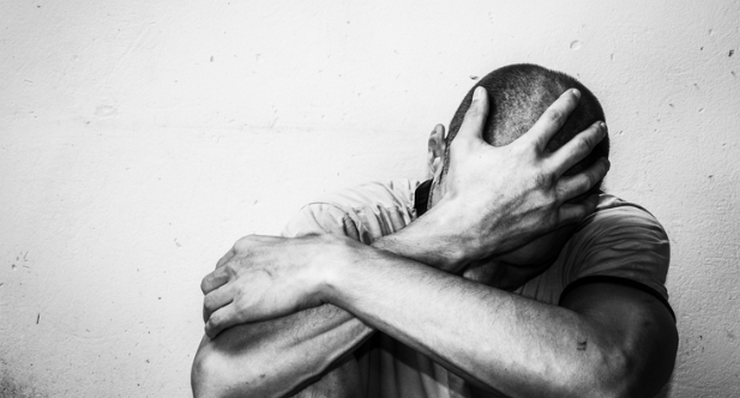
About 50 residents of Northwest Pasadena and West Altadena met at Perry’s Joint on Saturday evening for the second “Gentrification Conversation” led by Alfredo Resendiz. The discussions were sparked in part by the opening of Lincoln, a new upscale restaurant on Lincoln Avenue, which has brought issues about gentrification of the middle to lower-class neighborhoods to a head. The diversity of attendees reflected the ethnic diversity of the area to some extent, with blacks and whites being about equally represented and Latinos less so.

Questions and comments centered around five issues: the definition of gentrification, the impact on the community, displacement of current residents, cultural changes, and responsibility. Resendiz insisted that while the first meeting was polite, he wanted “the gloves to come off” on this go-round.
And come off they did. Remarks were frank and often dealt with racial issues, though most commenters were careful not to identify one ethnic group as the problem. Differing economic statuses were not treated so gently, with identifiers such as “black, brown and working-class white” being used frequently.
Current gentrification in Northwest Pasadena and West Altadena was not defined as an ethnic issue, but rather as displacement of people of lower income by people with greater income, often intentionally.
“Gentrification is impacting the most vulnerable people,” a resident of Summit Avenue commented. An Altadena resident stated, “I see it as people complaining about my yard…people wanting to impose their values on me.”
Is it good or is it bad?
The impact of gentrification was less clear. One young woman observed, “If it’s defined as an imposition, if it’s about devaluing people, then it can’t possibly be positive.” Others saw the issue as more nuanced, a mixture of good and bad.
An Altadena newcomer noted that affordability of housing is one of many factors that cause changes in neighborhoods. “I’m not comfortable saying that people try intentionally to displace other people,” she said, adding that she is trying to be involved in the community. She and others mentioned that change often comes when a long-time homeowner passes away and the heirs want or need to sell the property. “People like me want to move here.”
One woman said that while she would like the yoga classes and smoothie shops gentrification might bring, she was bothered by the attitudes of some of the newcomers, those who are “glad to see us go,” or who state, “Oh, it’s really turning around now” or talk about “cleaning up the neighborhood.”
A young man who lives directly behind the Lincoln restaurant with his young children said that since he moved in 3 ½ years ago, there had been rampant drug use and four shootings, two fatal, on his street. His own house was strafed, he said, and the City of Pasadena had not been responsive to the situation. After the restaurant opened, things changed for the better.
“Folks from Lincoln walk with their strollers,” he said. “Most don’t live in the neighborhood. This is unique to the Lincoln, but I’m not mad to see them, because it’s changed my neighborhood. I’d rather be worried about that than shootings.”
Who is getting displaced?
Throughout the discussions, the history of the area was referenced. Mentioned were the ethnic enclaves and de facto segregation of schools in the past, changing neighborhood makeups throughout the decades, and displacement of the Japanese (though not the reason). Rents go up, displacing tenants, Resendiz said, and others commented that people who inherit houses sometimes can’t afford to take over the mortgage or need to use the money from a sale for other things.
What about our culture?
With so many ethnicities and different cultures within those ethnic groups, a definition of the current West Altadena/Northwest Pasadena culture eluded the participants, but what it isn’t as well as what it could be was stated. “Culture is layered,” said a young woman who has lived in the Northwest for five years, noting the cultures have changed over the decades. “Be careful of defining this as fixed. It’s fluid and dynamic.”
“Culture is not crime or littering or graffiti,” the Altadena woman with the yard said. “We’ve got great culture, but we’re not going to define it. We’re going to live it.” A teenage boy commented that changing the aesthetics of the neighborhood by taking care of it would bring changes in the culture.
A young woman urged, “Let’s be a part of what comes in.” She said she would like to see a vibrant arts culture and that residents should create the kind of community they want to see.
Who bears the responsibility for gentrification?
This was presented as both how gentrification comes about, and who is responsible for making it work within the context of the existing community—the newcomers or the old-timers. Though there are natural cycles of changes in neighborhoods, a long-time resident said, the cause of gentrification is a result of real estate interests and local governments conspiring together. Resendiz asked if newcomers should be welcomed but tasked with contributing to the community.
A woman relatively new to the area said that when she moved in, no one visited the family. She took the initiative by taking cookies to her neighbors and having her children play in front where they could be seen.
The teenager admonished, “We are looking at the symptoms of the problem and not looking at the root causes…. We need more places that have community support, not just places to consume things.”
A woman commented, “This is a welcoming community. Gentrification is about policy, not about white neighbors or Japanese neighbors. When you see injustice, speak to that injustice.”














 0 comments
0 comments



